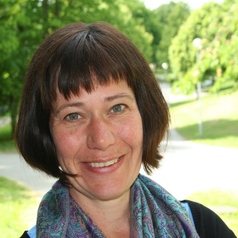
Cecilia Åse
Professor of Gender Studies, Stockholm University
I'am a political scientist and professor in gender studies at the Department of Ethnology, History of Religions and Gender Studies at Stockholm University. My publications include several books on gender and nationalism and on feminist theory and methodology. I have also done extensive work on the gendered institution of the Swedish constitutional monarchy. My work on gendered protection, war-making, and crisis narratives appears in International Feminist Journal of Politics, Cooperation and Conflict, and Journal of Cold War Studies. I have recently publiched the volume Gendering Military Sacrifice. A Feminist Comparative Analysis (Routledge 2019, with Maria Wendt).
Less ![]()

Cecilia Zoppelletto
Visiting lecturer in film studies, University of Westminster
Cecilia Zoppelletto, PhD, started her career as a news producer for the London
correspondence bureau of RAI, the Italian National Broadcasting Company, and later
worked as a factual content producer for the Italian network Antenna Tre Nordest. She is
the founder and director of Preston Witman Productions in London. Cecilia made her
directorial debut with La Belle at The Movies (2015), which screened at more than twenty
international film festivals, including the African Film Festival at Lincoln Center, New York,
and the BFI British Film Institute in London in 2019. She is a visiting lecturer at the
University of Westminster in London and in 2020, she initiated the film studies program at
the Académie des Beaux Arts in Kinshasa. In 2023, she completed two documentaries,
which she co-produced and co-directed: the short animation film Ota Benga about the
pigmy who was exhibited at the Bronx Zoo, and the feature AP Giannini: Bank to the Future about the founder of Bank of America. During the same year, she established the company
Zop Media Consulting in DRC. In 2024 Cecilia has joined the Board of Directors of African
Film Festival Inc in New York City. She is a creator and an educator with a keen interest in
archive preservation.
Less ![]()

Cecilia Hyunjung Mo
Assistant Professor of Political Science, Vanderbilt University
Cecilia Hyunjung Mo is an Assistant Professor in the Department of Political Science, with a courtesy appointment at the Peabody College of Education and Human Development for Vanderbilt University. She is also a W. Glenn Campbell and Rita Ricardo-Campbell National Fellow and the Robert Eckles Swain National Fellow at the Hoover Institution, Stanford University.
Her research and teaching interests include a broad array of issues in political behavior, public policy, and the political economy of development. She is concerned with basic research on bounded rationality, as well as in integrating insights from theories of bounded rationality into models and empirical analyses of political and economic decision-making and institutions.
Her applied work namely focuses on understanding and addressing important social problems related to inequality, prejudice, gender-based violence, and education. She is currently working on several papers examining how to model biases to which individuals are subject, as well as research on human trafficking vulnerability and public opinion around human trafficking policies. In addition to this work, she has written on a variety of other topics, including anti-immigrant sentiment and education policy.
She is the recipient of the American Political Science Association's 2015 Franklin L. Burdette/Pi Sigma Alpha Award for the best paper presented at the previous year's annual meeting.
Less ![]()

Cecilia Ka Yuk Chan
Professor/Associate Director, University of Hong Kong
Cecilia Ka Yuk Chan is Professor at the Faculty of Education and Associate Director at the Centre for the Enhancement of Teaching and Learning (CETL) in the University of Hong Kong (HKU). She has a dual cultural and disciplinary background, with expertise in engineering and education, and has played a key role in enhancing engineering education and teaching and learning in higher education. Prof. Chan has led and conducted research in the areas of assessment, feedback, experiential learning, technology enhanced learning, and 21st century skills and has been involved in over 40 research projects worldwide. She is the Founding President of the Asian Society for Engineering Education and holds a Principal Fellowship with the Higher Education Academy in the UK. Prof. Chan leads CETL's Innovation and Support portfolio and is responsible for teaching and learning initiatives, faculty professional development, and strategic planning at HKU. She is also a leader in teaching and learning, represented HKU in various networks and is often invited to present her work internationally. Prof. Chan has secured more than 50 million research funding, and substantial donations and has received a Faculty Knowledge Exchange Award and HKU University Outstanding Young Researcher Award. She has recently written a book on Assessment for Experiential Learning, and have published widely in the area of teaching and learning particularly on holistic competency. More information can be found: https://tlerg.cetl.hku.hk/
Less ![]()
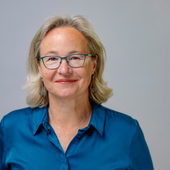
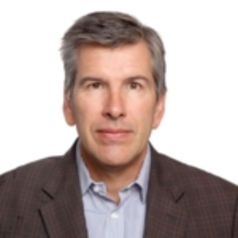
Cedric de Coning
Senior Researcher, Norwegian Institute of International Affairs
Cedric de Coning is a research professor in the research group on peace, conflict and development at the Norwegian Institute of International Affairs (NUPI). He co-directs the NUPI Center on United Nations and Global Governance, and the Climate, Peace and Security Risk project. He coordinates the Effectiveness of Peace Operations Network (EPON) and contributes to the Training for Peace programme, the UN Peace Operations project (UNPO) and several others. He is also a senior advisor for ACCORD.
He has 30 years of experience in research, policy advice, training and education in the areas of conflict resolution, peacekeeping, peacebuilding and peace and conflict studies. Cedric has a PhD in applied ethics from the Department of Philosophy of the University of Stellenbosch, and an MA (cum laude) in conflict management and peace studies from the University of KwaZulu-Natal.
Less ![]()
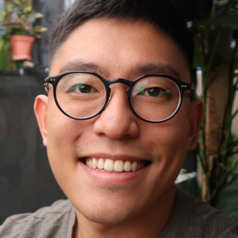
Cedric Tan
PhD Candidate, UCL Genetics Institute, UCL
I'm a computational biologist specialising in microbial (meta)genomics and I'm currently interested in the ecology and evolution of zoonotic host jumps. I'm currently doing my PhD at the Francis Crick Institute and UCL Genetics Institute under the supervision of Francois Balloux, Lucy van Dorp and Philippa C. Matthews.
Less ![]()
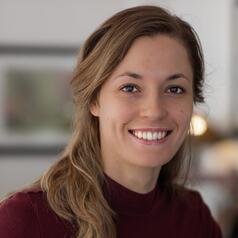
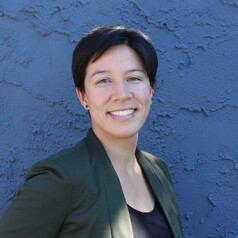
Celeste Pang
Assistant Professor, Women's and Gender Studies, Mount Royal University
Dr. Celeste Pang is an Assistant Professor in Women's and Gender Studies at Mount Royal University where she is also the co-lead of the QriTical: queer + trans research hub.
Dr. Pang's research, education, and community work focus on aging, disability, and care access and equity, with significant focus on 2SLGBTQIA+ issues. Prior to joining Mount Royal University Dr. Pang completed a PhD and Postdoctoral Fellowship in the Department of Anthropology at the University of Toronto, and worked in a community-based research department.
Less ![]()
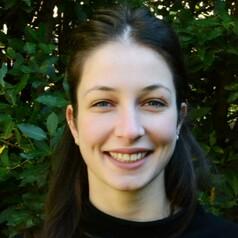
Celeste Scarpini
Researcher, Institute of Development Studies
Celeste is a Research Officer at the International Centre for Tax and Development, primarily working in the Tax Administrations and Compliance and DIGITAX programmes.
She is researching several projects regarding tax administration, from technology adoption to data management and revenue collection strategies in Sub-Saharan Africa. She has experience with quantitative and qualitative data analysis and fieldwork experience in Uganda, Rwanda and Ghana.
Before joining the ICTD, Celeste worked as Trainee at the UNDP Regional Bureau for Africa in New York. Celeste holds an MSc in Development Economics from the University of Sussex and is a PhD candidate in Economics at the University of Sussex.
Less ![]()
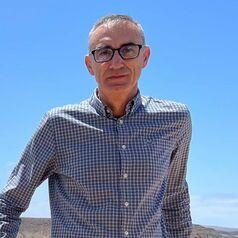
Celestino Deleyto Alcalá
Catedrático de Estudios Ingleses y Fílmicos, Universidad de Zaragoza
Celestino Deleyto es catedrático de Estudios Ingleses y Fílmicos en la Universidad de Zaragoza. Ha dirigido numerosas tesis doctorales sobre Estudios Fílmicos, es el Investigador Principal del equipo de investigación de la DGA "Cine, Cultural y Sociedad" y ha sido IP y co-IP de proyectos de investigación nacionales sobre cine contemporáneo y teorías fílmicas, género cinematográfico, cine transnacional y fronteras, cosmopolitismo y espacio cinematográfico. Ha publicado varios libros y numerosos artículos sobre la teoría e historia de la comedia romántica. Sus libros más destacados son The Secret Life of Romantic Comedy (Manchester UP, 2009), Alejandro González Iñárritu, for the Contemporary Film Directors series (Illinois UP, 2010), co-escrito with María del Mar Azcona, y From Tinseltown to Bordertown: Los Angeles on Film (Wayne State, 2016). En la actualidad está escribiendo junto con María del Mar Azcona una monografía sobre la película Before Sunrise para la editorial Routledge.
Less ![]()
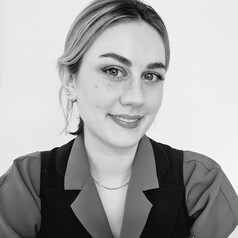
Celia Edell
Postdoctoral fellow, Department of Philosophy, University of British Columbia
Celia Edell is a Fonds de recherche du Québec (FRQSC) Postdoctoral Fellow in the Philosophy Department at the University of British Columbia. She holds a PhD in Philosophy from McGill University where she was a Social Sciences and Humanities Research Council of Canada (SSHRC) Doctoral Fellow. Her research lies at the intersection of feminist theory, social epistemology, and ethics with a special focus on guilt, blame, and group oppression.
Less ![]()
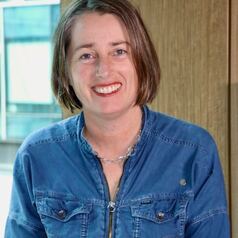
Celia Roberts
Professor of sociology, Australian National University
Celia Roberts is a Professor in the School of Sociology at The Australian National University. She is author of several books on sex/gender, health and technology, including Messengers of Sex: Hormones, biomedicine and feminism (Cambridge UP, 2007), Puberty in Crisis: The sociology of early sexual development (Cambridge UP, 2015), and with Adrian Mackenzie and Maggie Mort, Living Data: Making sense of health biosensing (Bristol University Press, 2019).
Less ![]()
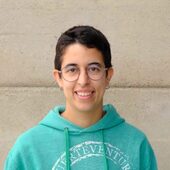
Cèlia Guixé Marsiñach
Técnica de Transferencia y de proyectos territoriales y sectoriales, Universitat de Vic – Universitat Central de Catalunya
Less ![]()
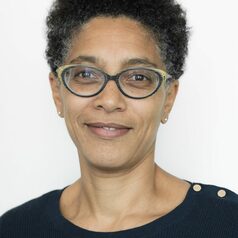
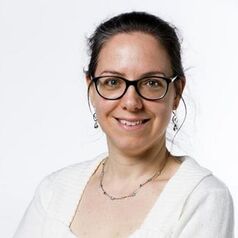
Celine Campagna
Adjunct professor, Institut national de santé publique du Québec, Université Laval
Expert in environmental public health and climate change. Institut national de santé publique du Québec, Université Laval et Institut national de recherche scientifique.
Less ![]()
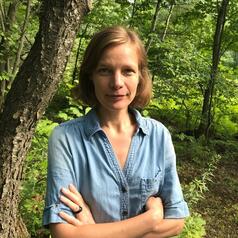
Céline Delacroix
Adjunct Professor and Senior Fellow, School of Health Sciences, L’Université d’Ottawa/University of Ottawa
Dr. Céline Delacroix is adjunct professor at the University of Ottawa’s School of Health Sciences. She is the Director of the FP/Earth project with the Population Institute. Her interdisciplinary research focuses on analyzing how family planning, population size, and environmental sustainability intersect and are perceived. She is looking for ways to harness these linkages to benefit reproductive rights and improve environmental sustainability. She earned a PhD from the University of Ottawa, a Master’s in Science from the Free University of Brussels (Belgium) and an LLB in Law from Cardiff University (Wales, UK). Dr. Delacroix also served as Executive Director of several human rights and environmental civil-society organizations, including the Conservation Council of New Brunswick and Ethiopiaid Canada.
Less ![]()

Céline Gallen
Professeur des Universités en Sciences de Gestion, IAE Nantes, NANTES Université, Université de Nantes
Céline Gallen est Professeur des Universités à l'IAE de Nantes Université où elle enseigne le Marketing et pilote le Master Etudes et Actions Marketing. Suite à ses travaux de Doctorat, elle a reçu le prix de la meilleure thèse en Economie et Gestion Agro-alimentaire en 2001. Ses recherches portent sur l’étude des comportements de consommation alimentaire, et plus particulièrement les mécanismes cognitifs d’acceptation des innovations alimentaires. Ses travaux scientifiques font l’objet de publications dans des revues scientifiques nationales et internationales. Elle est chercheur associé au Food Design Lab de l’Ecole de Design Nantes Atlantique. Elle a également participé à titre d’expert à des groupes de réflexion pour la Commission Européenne et le Sénat. Elle est co-responsable scientifique du projet ANR CRI-KEE sur la consommation d’insectes en Europe et partenaire scientifique de la Chaire AApro sur les avantages et l'acceptabilité des proteins végétales.
Less ![]()
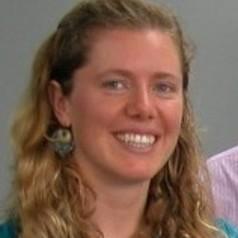
Celine Steinfeld
Director, Wentworth Group of Concerned Scientists & Adjunct Lecturer, UNSW Sydney
Dr Celine Steinfeld is a geographer specialising in freshwater science and policy in Australia. Celine completed her honours and PhD research in river management in the Murray-Darling Basin at the University of New South Wales. She won the University Medal in 2008, the NSW Government Peter Cullen Postgraduate Scholarship in 2009 and the international River Management Young Achievers Award in 2012. After graduating, Celine worked in policy implementation at the Murray-Darling Basin Authority. She is now Director at the Wentworth Group of Concerned Scientists, a not for profit organisation with the goal of linking science to public policy. She continues her research as an Adjunct Lecturer at UNSW Sydney’s Centre for Ecosystem Science.
Less ![]()
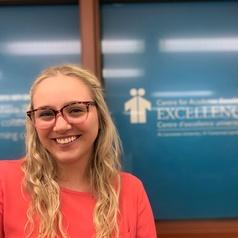
Celisse Olivia Bibr
PhD Student, Rural and Northern Health, Laurentian University
I have completed an undergraduate degree in Health Sciences at McMaster University, a Master's in Interdisciplinary Health at Laurentian University, and I am currently in my final year of my PhD in Rural and Northern Health at Laurentian University. I also work for the Canada FASD Research Network, where I was project coordinator for the research project in FASD and housing, and I am currently the coordinator for the National FASD Database.
Less ![]()
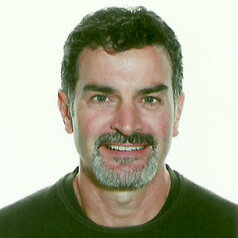
Celso García
Catedrático de Geografía Física, Universitat de les Illes Balears
Doctor en Geografia por la Universitat de Barcelona (1997). Estancia postdoctoral en la Loughborough University (UK) el año 1998. He realizado estancias de investigación en la Ben Gurion University (Israel), el USDA Forest Service Pacific Southwest Research Station (EEUU), la Universidad de Glasgow (Escocia) y la Universidad de California en Berkeley (EEUU). Profesor de Geografía Física en el Departament de Geografia (antes Ciències de la Terra) de la Universitat de las Illes Balears desde Octubre de 1998.
Su investigación se centra en: i) geomorfología fluvial (efectos del hydropeaking en el inicio del movimiento en ríos de grava, transporte de sedimentos, evolución de la red fluvial), ii) la hidrología en cursos de agua temporales mediterráneos (análisis de series temporales, hidrología de caudales cero y ecología fluvial), iii) los recursos hídricos en medio insulares (gestión del agua, consumo de agua en zonas urbanas y turísticas, tarifas del agua) y iv) la fotografía aérea histórica para evaluar los cambios en el paisaje a largo plazo.
Less ![]()
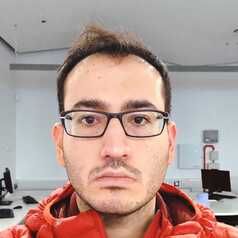
Cem Soner
Doctoral Researcher in Finance, Bangor University
Cem Soner is a Doctoral Researcher in Finance and an Instructor at Bangor Business School. His research focuses on bank lending, small business lending, economic shocks, and regional inequalities. Previously, he was working in the international development sector as a consultant. He obtained his bachelor's degree in economics from Bilkent University (Turkey) and master's degree in corporate finance from SDA Bocconi (Italy). He has also completed all three levels of the Chartered Financial Analyst (CFA) programme.
Less ![]()
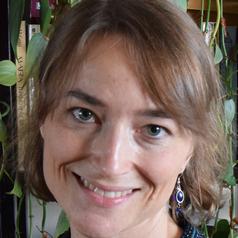
Cendri Hutcherson
Associate Professor of Psychology, University of Toronto
Cendri Hutcherson is the director of the Decision Neuroscience Laboratory, and an Associate Professor of Psychology at the University of Toronto. She received degrees in psychology from Harvard (B.A.) and Stanford (Ph.D.), and spent several years as a post-doctoral scholar studying neuroeconomics at the California Institute of Technology. Her research focuses on understanding why people make the decisions they do, why they so often make decisions they regret, and how we can help them make better choices for themselves and others. To answer these questions, her lab focuses on building sophisticated computational and neural models of decision making and self-control. Ultimately, this research will be used to design better interventions and technological tools to help people achieve their goals and live healthier, happier lives.
Less ![]()

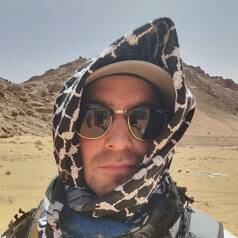
Ceri Shipton
Lecturer in Palaeolithic Archaeology, UCL
Ceri works on the Stone Age of the Indian Ocean rim: featuring the prehistories of east Africa, Arabia, India, Wallacea, and northern Sahul. His research interests range from the evolution of human cognition and sociality to the dispersals of Afro-Asiatic and Austronesian languages.
Less ![]()
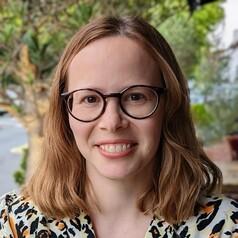
Ceri Wilson
Senior Research Fellow, Mental Health, Anglia Ruskin University
Ceri’s expertise lies in using quantitative, qualitative and creative methods to explore various aspects of mental health and wellbeing. Ceri has a particular interest in the role of arts, creative and cultural engagement in promoting mental wellbeing and social connectedness. Ceri’s research spans various population groups, including people with long-term health conditions, mental health service users, healthcare professionals, young adults and older people.
Less ![]()
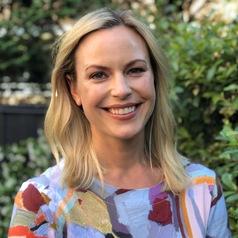
Ceridwen Dovey
Research fellow, Macquarie University
Ceridwen Dovey is a fiction writer, science writer, filmmaker and Macquarie University Research Fellow. Her most recent book is Only the Astronauts (Penguin Random House, 2024).
Less ![]()
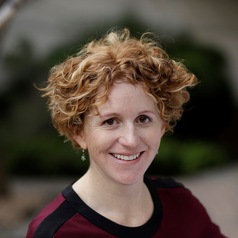
Ceridwen Fraser
Senior lecturer, Australian National University
I have a couple of undergraduate degrees from Australia (University of Canberra and Macquarie University) and a PhD from the University of Otago in New Zealand. I worked as a postdoctoral fellow in New Zealand (University of Otago) and then in Belgium (Universite Libre de Bruxelles) before taking up a permanent position as a lecturer in the Fenner School of Environment and Society at the Australian National University in 2012. My research focuses on the biogeography and evolution of Southern Hemisphere species. I use both ecological and genetic techniques to address research questions, and have a particular interest in high-latitude (sub-Antarctic and Antarctic) ecosystems.
Less ![]()
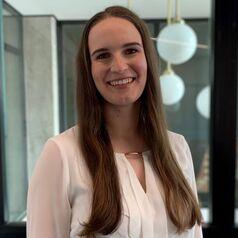
Cervantée Wild
Research Fellow, University of Oxford, University of Oxford
ervantée Wild is a Girdlers’ New Zealand Health Research Council Fellow at Green Templeton College.
I am an interdisciplinary health services researcher interested in improving health services and systems for children, young people and their families. I work alongside clinicians in the intersection between clinical and public health to prioritise participant voices in service improvement and systems change. I have broad training in health sciences, public health and political studies, with experience in both quantitative and qualitative health research. My research interests increasingly span the social and political determinants of health and health inequities.
I am based in the Nuffield Department of Primary Care Health Sciences in the Medical Sociology and Health Experiences Research Group. I currently work on an NIHR-funded study to understand family experiences of Long Covid in order to support self-care and timely access to services.
My doctoral research with the Liggins Institute, University of Auckland, focused on improving outcomes for families involved in a novel child and adolescent obesity intervention programme while addressing health equity. The mixed-methods research investigated the challenges surrounding engagement in health services for childhood obesity and long-term persistence of healthy lifestyle change. Since then I have contributed to a range of studies on multidisciplinary obesity intervention, enabling fair and informed involvement in child health research, and healthcare workers’ experiences of PPE access during the COVID-19 pandemic in New Zealand as part of the PPE disinfection for potential reuse project with the University of Auckland.
Less ![]()
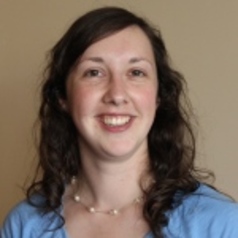
Cerys Jones
Geography Lecturer, Aberystwyth University
Cerys Jones has a PhD from Aberystwyth University and is a Lecturer in the Department of Geography and Earth Sciences at the same institution. Her research focuses on the relationship between people and extreme weather, particularly from a historical perspective.
Less ![]()
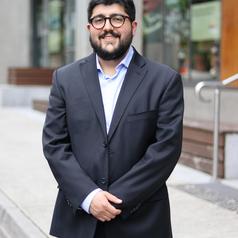
César Albarrán-Torres
Senior Lecturer, Department of Media and Communication, Swinburne University of Technology
César Albarrán-Torres is a Mexican-Australian scholar and film critic. He is Senior Lecturer in Media and Communication at Swinburne University of Technology in Melbourne, Australia, where he teaches Global Screen Studies. He has been widely published in academic and non-academic titles as a film and literary critic, author and translator. His current research focuses on film and television, as well as the negotiations between social media and politics in Mexico, particularly concerning the drug cartels. He is the author of Digital Gambling: Theorizing Gamble-Play Media (2018) and Global Trafficking Networks on Film and Television: Hollywood's Cartel Wars (2021). He is editor at the online journal Senses of Cinema.
Less ![]()
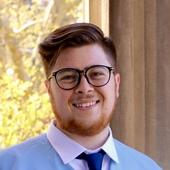
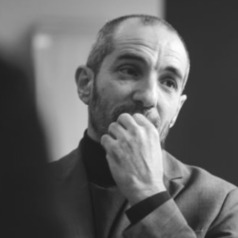
César Martín-Gómez
Catedrático en instalaciones y sistemas energéticos en arquitectura y urbanismo, Universidad de Navarra
César Martín-Gómez, Catedrático de la Universidad de Navarra, ha sido responsable en proyectos de instalaciones y sistemas energéticos en I&S Ingenieros (2000-2005), en el Departamento de Arquitectura del Centro Nacional de Energías Renovables (2005-2007) y como responsable de instalaciones y energía en Mangado & Asociados (2007-2009).
Desde el año 2009 trabaja como investigador y profesor en el Departamento de Construcción, Instalaciones y Estructuras de la Universidad de Navarra.
Less ![]()
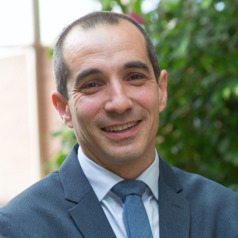
César Martín-Gómez
Catedrático en instalaciones y sistemas energéticos en arquitectura y urbanismo, Universidad de Navarra
César Martín-Gómez, Catedrático de la Universidad de Navarra, ha sido responsable en proyectos de instalaciones y sistemas energéticos en I&S Ingenieros (2000-2005), en el Departamento de Arquitectura del Centro Nacional de Energías Renovables (2005-2007) y como responsable de instalaciones y energía en Mangado & Asociados (2007-2009).
Desde el año 2009 trabaja como investigador y profesor en el Departamento de Construcción, Instalaciones y Estructuras de la Universidad de Navarra.
Less ![]()
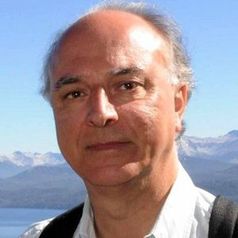
Cesáreo Rodríguez-Aguilera de Prat
Catedrático de Ciencia Política, Universitat de Barcelona
Autor de una amplia obra dedicada a cuestiones de política comparada y teoría política. Investigaciones actuales centradas en integración europea y partidos políticos.
Less ![]()
- Market Data





















